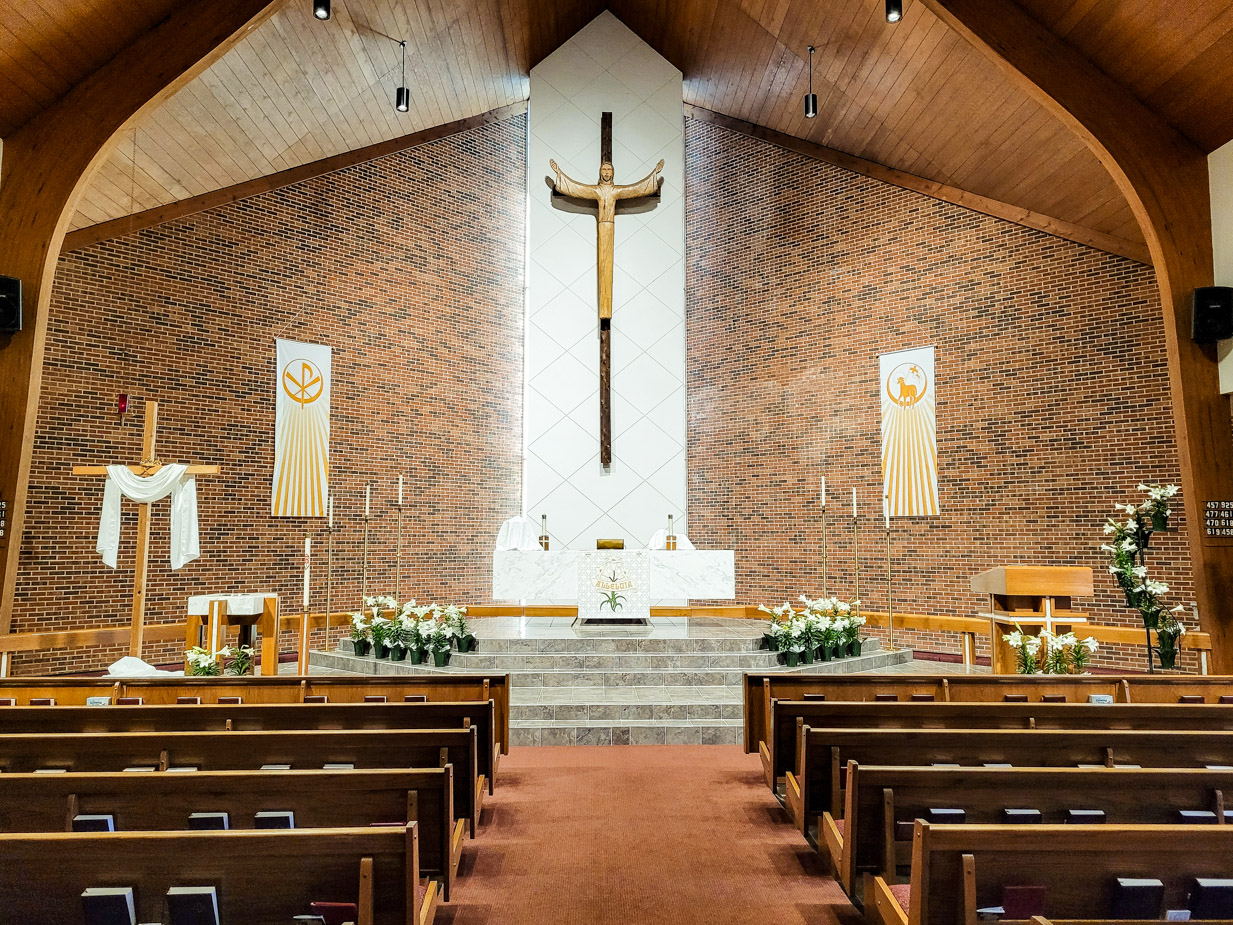

 ©LaBelleLife.com (Easter 2023)
©LaBelleLife.com (Easter 2023)
Chapter 42:10-14 (ESV) - In the thickness of the wall of the court, on the south also, opposite the yard and opposite the building, there were chambers with a passage in front of them. They were similar to the chambers on the north, of the same length and breadth, with the same exits and arrangements and doors, as were the entrances of the chambers on the south. There was an entrance at the beginning of the passage, the passage before the corresponding wall on the east as one enters them.
Then he said to me, “The north chambers and the south chambers opposite the yard are the holy chambers, where the priests who approach the Lord shall eat the most holy offerings. There they shall put the most holy offerings—the grain offering, the sin offering, and the guilt offering—for the place is holy. When the priests enter the Holy Place, they shall not go out of it into the outer court without laying there the garments in which they minister, for these are holy. They shall put on other garments before they go near to that which is for the people.”
Question to consider: What is your understanding of religion, and do you think it belongs in the church?
The two chambers mentioned in today’s passage are sacristies, places of preparation for divine worship. The sacristy on the side of the temple nearest the north gate had an entrance facing south. It was used by the Levite priests who maintained the temple. The sacristy on the side of the temple nearest the south gate had an entrance facing north. It was used by the Zadokite priests to maintain the altar. Zadok was a levitical priest who served under Solomon and was particularly faithful to the Lord. Those who descended from him were called the sons of Zadok or the Zadokites. The one who served as Ezekiel’s tour guide said of them, “...the chamber that faces north is for the priests who have charge of the altar. These are the sons of Zadok, who alone among the sons of Levi may come near to the Lord to minister to him.” (Ezekiel 40:46)
Even though all of the saints are fellow inheritors of the kingdom of heaven and one in Christ Jesus, each of us is still called to a different vocation and reward. As Paul said in 2 Corinthians 5:9-10, “So whether we are at home or away, we make it our aim to please him. For we must all appear before the judgment seat of Christ, so that each one may receive what is due for what he has done in the body, whether good or evil.”
All who serve in the temple appear to be given special garments to do their work. Today, many paint a false dichotomy between religion and relationship. Because of Christ, we can call God our Father, but we should still revere God and consider His work among us to be sacred.
I’m not one who wears suits to church, but I understand why people do and think they should wear whatever helps them to worship God with all their heart. When I serve as an elder for communion, however, I wear a robe that has been set aside for this task. This is not so that I can feel superior to anyone or have people think that I am more righteous than those whom I serve. The robe is worn to honor the sacred task of administering God’s gifts to the congregation.
People will argue whether or not a pastor should wear a robe and vestments because they don’t want to put the pastor on a pedestal. He is after all just a brother in Christ. However, the idea is the same as with the elder robes. The pastor is fulfilling a holy task of providing the Lord’s absolution for the sins we confess, serving us faithfully God’s Law and Gospel from His word, and feeding the sheep the body and blood of Christ. Church is not just about receiving life advice from a sermon. That is why we need to do our best to gather with one another in person rather than viewing church online. God can serve you His word online, but it’s only in person that you participate in the body and blood of Christ. Paul said the following to the Corinthians, “The cup of blessing that we bless, is it not a participation in the blood of Christ? The bread that we break, is it not a participation in the body of Christ? Because there is one bread, we who are many are one body, for we all partake of the one bread. Consider the people of Israel: are not those who eat the sacrifices participants in the altar?” (1 Corinthians 10:16-18) The context may have been about food sacrificed to idols, but Paul saw the communion meal as participating in the same way that the priests did when consuming the sacrifice. Therefore, it should be kept sacred and done in the assembly of believers.
Dear heavenly Father, thank You for giving us both the sacred and the common. Thank You for coming near to us as well as being transcendent above all things. May Your name always remain holy on our lips and honored in our actions. Amen.